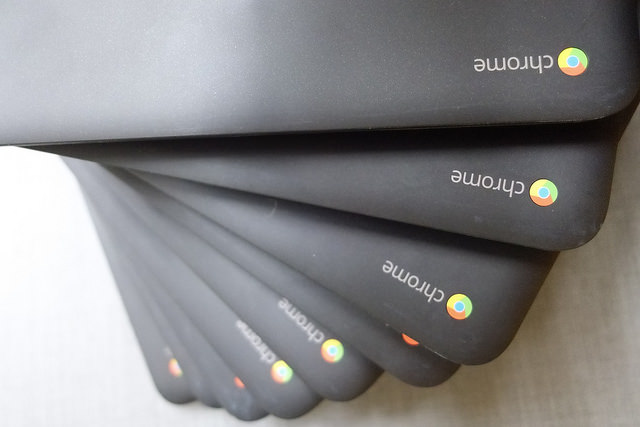ARVADA, Colo. – A Colorado school district is requiring high school students to purchase a laptop for class, and they must buy the devices from the district.
Officials in Jefferson County Schools used to allow students to bring their own computers to school, but the situation apparently caused confusion with connectivity issues for a variety of different devices, KUSA reports.
MORE NEWS: Know These Before Moving From Cyprus To The UK
“Trying to get a MacBook connected, a laptop PC connected, an iPad connected, I mean you had 6 to 7 devices,” Arvada West High School Principal Rob Bishop said.
The situation also made it difficult for teachers to control the different devices in class, and officials allege the arrangement also disadvantaged some students who could not afford their own computer.
“There’s self-esteem associated with it and some kids can’t really bring much of anything,” Arvada West technology coordinator Leah Lindblom said, adding that the bring-your-own device plan exposed the “haves” and the “have nots.”
So district officials concocted a different plan to make sure all students have the same exact computer, a Chromebook teachers can control, and required them to purchase the machines from their schools for $200.
Those who qualify for free or reduced-price lunches received their computers for free, though it’s unclear whether the “haves” are subsidizing the “have nots,” or whether the free devices are covered by taxpayers.
“So, we were able to provide something for everybody,” Lindblom told the news site. “Consistent, reliable access for all.”
“Some of the kids have come to me in tears, not even kidding you, saying thank you,” she said.
MORE NEWS: How to prepare for face-to-face classes
The move comes as technology and student privacy experts are raising the alarms about how tech companies like Google are spying on students and tracking their online habits through school-issued devices.
The Electronic Frontier Foundation released a report in April that shows “state and federal laws, as well as industry self-regulation, has failed to keep up with the educational technology industry.”
“At the same time, schools are eager to incorporate technology into the classroom to engage students and assist teachers, but may unwittingly help tech companies surveil and track students,” according to the report, “Spying on Students: School-Issued Devices and Student Privacy.”
“Throughout EFF’s investigation over the past two years, we have found that educational technology services often collect far more information on kids than is necessary and store this information indefinitely,” according to the report.
“This privacy-implicating information goes beyond personally identifying information like name and date of birth, and can include browsing history, search terms, location data, contact lists, and behavioral information. Some programs upload this student data to the cloud automatically and by default.
“All of this often happens without the awareness or consent of students and their families.”
Bishop contends the new approach “really leveled the playing field for all of our families,” though he acknowledged that some parents who already purchased a computer for their child weren’t too excited to buy another.
“When people exchange something of value, they kind of take ownership of it and they take care of it,” he said.
Lindblom said the Chromebooks are designed so teachers can shut them down in class, if need be.
“We really need to stop kids in their tracks sometimes and be able to blank all their screens and say eyes on me,” she said.
The standardized computers also allowed school officials to use the devices for state testing. Previously, officials banned students from using their own computers for the tests, instead requiring them to use the limited number of school computers.
The situation meant it took three weeks to get all students through the testing.
When officials allowed students to use their new computers, the testing took three days, Bishop said.
“It worked out great,” he said.
Arvada West was the first high school in the district to require students to buy their computers from the government, and four other high schools in the area are following suit this year.
“Green Mountain, Chatfield, Columbine, and Dakota Ridge are requiring freshmen to buy computers from the school which they can keep,” KUSA reports.


Join the Discussion
Comments are currently closed.